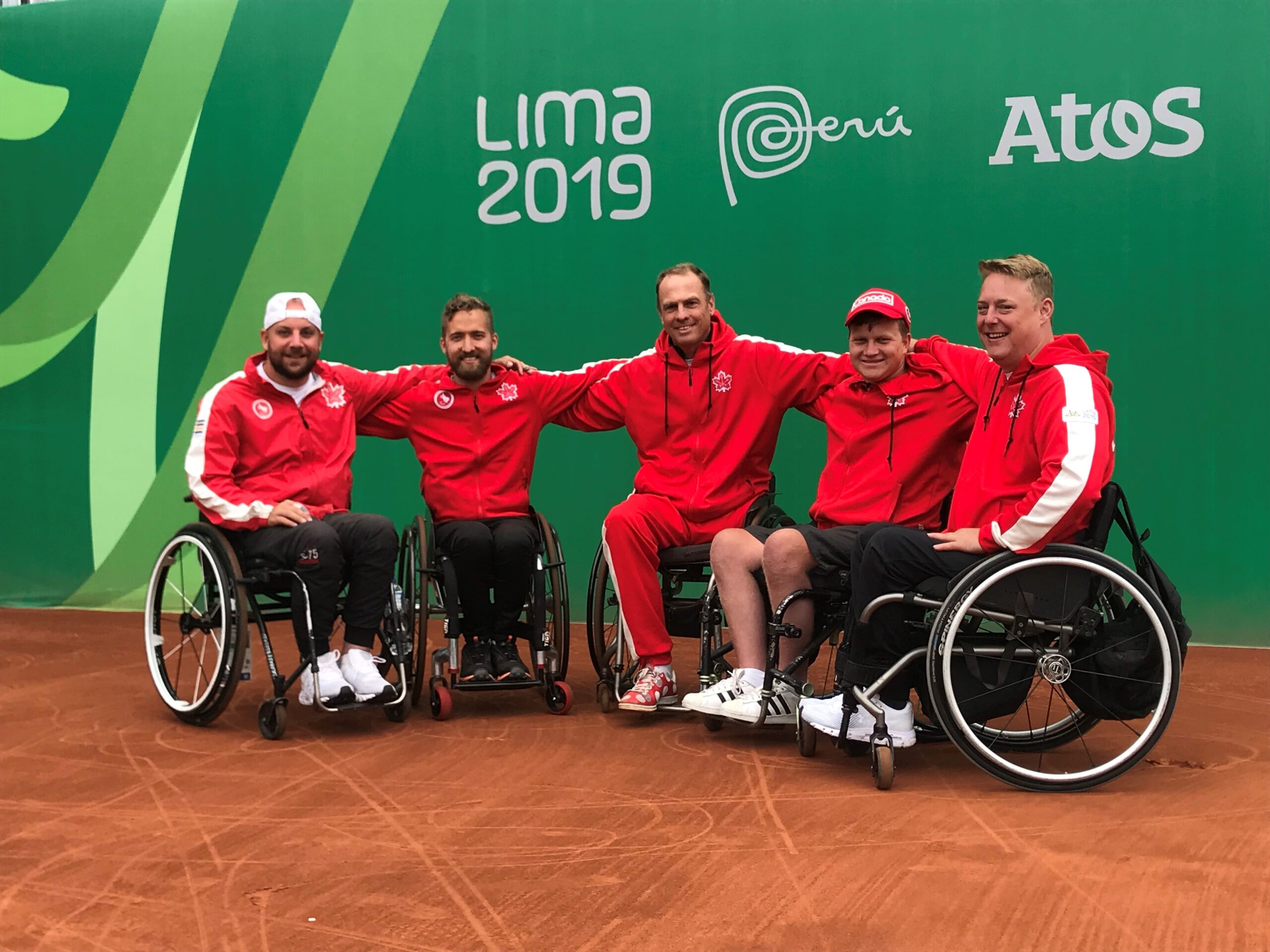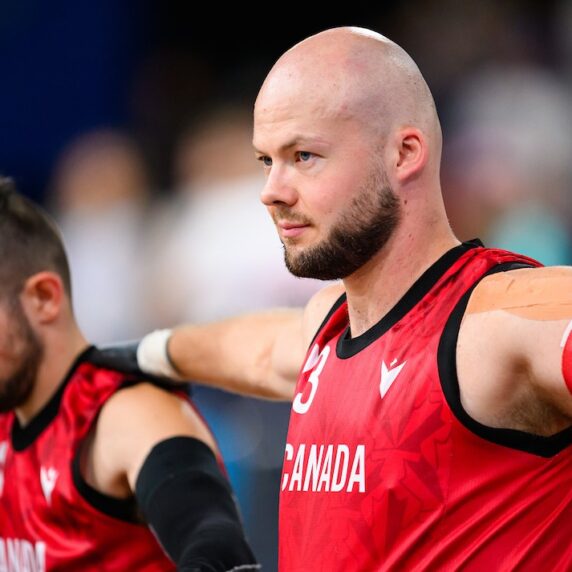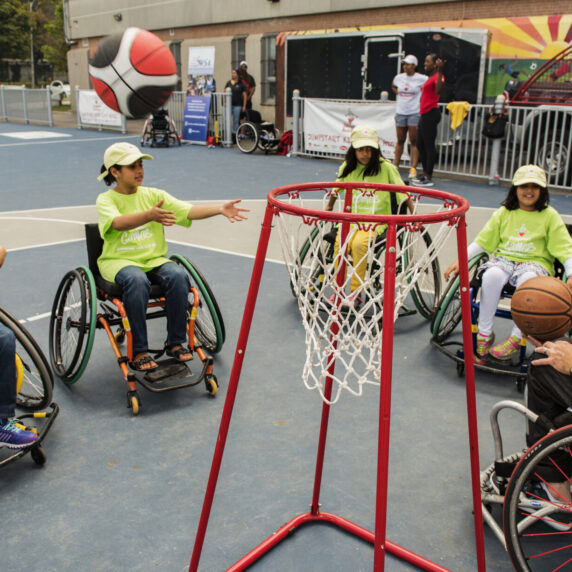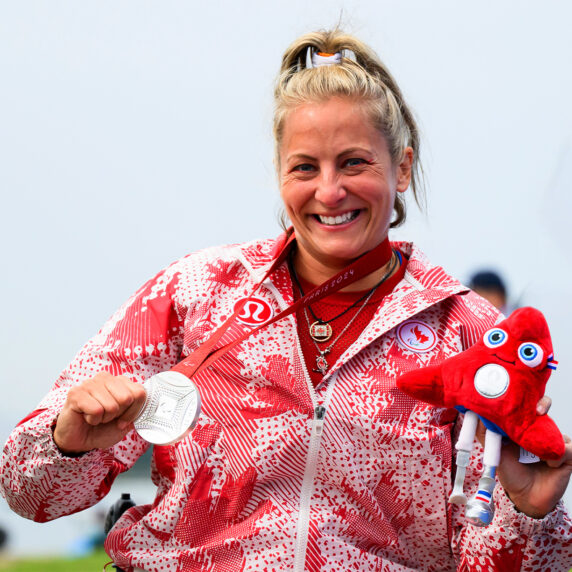Coach Spotlight: Kai Schrameyer follows passion to coach wheelchair tennis
Paralympian finds purpose in teaching sport

VANCOUVER – You can take Kai Schrameyer out of wheelchair tennis, but you can’t take wheelchair tennis out of Kai Schrameyer.
That’s just a snapshot of the three-time Paralympic medallist’s post-competitive career. A sports management masters student from the University of Georgia in Atlanta, the German-born Schrameyer was headed for a brilliant career in sports marketing.
He interned for Coca-Cola after university and worked for the company through 2010 at both the 2006 and 2010 Olympic and Paralympic Games as project schedule coordinator. Schrameyer moved to Vancouver in 2008 and it was there that the coaching bug began to itch.
As a wheelchair tennis player for Germany, he won silver in singles and bronze in doubles at the 1992 Paralympic Games in Barcelona, as well as bronze in singles at the 2000 Games in Sydney. He was world champion in 1993.
“It took 10 years to rediscover my passion for wheelchair tennis,” said Schrameyer, diagnosed at age 15 with bone cancer. Three months later, he had his left leg amputated above the knee. “After 15 years of playing I was done with the game and completely stepped away.
“But as great as the sports marketing world was, it didn’t fulfill me personally.”
When he moved to Vancouver, he started to volunteer with the B.C. Wheelchair Sports Association and eventually got an offer from Tennis Canada to work as a development coach. He hasn’t left Vancouver since.
“I liked Vancouver and I was doing something meaningful.”
Today Schrameyer is still with Tennis Canada and has brought great success – including Canada’s first wheelchair tennis medal at a Parapan American Games in 2015 (a men’s doubles bronze by Philippe Bedard and Joel Dembe), and a first gold courtesy of Rob Shaw in 2019. Shaw competed at his first Paralympic Games at Tokyo 2020 and is working hard with guidance from Schrameyer to reach the podium in 2024.
In those early coaching days, Schrameyer learned some valuable lessons. Number one: being a strong player doesn’t equal coaching expertise. So he decided to follow the National Coaching Certification Program.
“The certification brought an understanding of what the coaching system is,” he said. “To teach others, it takes skill. You need to be humble and start from scratch. I know this stuff [how to succeed in wheelchair tennis], but it’s conveying that knowledge so my student understands it.”
Schrameyer admits being a Paralympian provided a smokescreen for his lack of coaching expertise early on.
“Being a former athlete gives you credibility,” he said. “At the beginning, I was winging it while acquiring knowledge. The player thinks the coach knows his stuff so that helped at the beginning.”
Wheelchair tennis is not the easiest sport to teach. The sport requires strong hand-eye coordination all while deftly steering a wheelchair as quickly across the court.
“The mobility part is the big thing with new coaches,” said Schrameyer, who also holds a Master of Law from Heidelberg University. “We have workshops, and the main focus is to give coaches that experience. Coaches sit in the chair and realize how difficult it is to move around.”
Coaches getting into Para sport must be strong communicators.
“You need to be open-minded and let the athlete help you,” said the quadrilingual coach. “You don’t need to be a medical expert, the athlete will tell you what they can do. You can adjust your coaching style to the need of the player.”
In addition to coaching, Schrameyer is instrumental in the growth and development of the sport across Canada, leading wheelchair tennis instructor workshops, helping to deliver the Birmingham National Championships and Birmingham Classic events, along with countless introduction to wheelchair tennis sessions.
Shaw summed up Schrameyer’s impact succinctly in a statement when Schrameyer was named the 2021 Brad Parks Award winner by the International Tennis Federation (ITF) for his contribution to the sport.
“When you think about wheelchair tennis in Canada you can’t help but think of Kai.”
Quality coaching is an integral part of sport and building podium performances. Coach Spotlight presented by Petro-Canada™ highlights some of Canada’s top coaches who have made an impact in Paralympic sport.



"*" indicates required fields
"*" indicates required fields